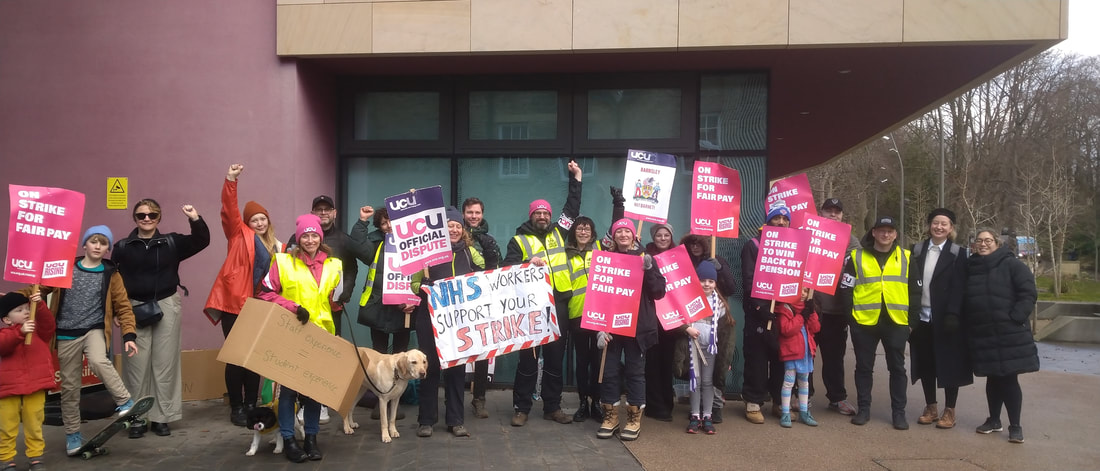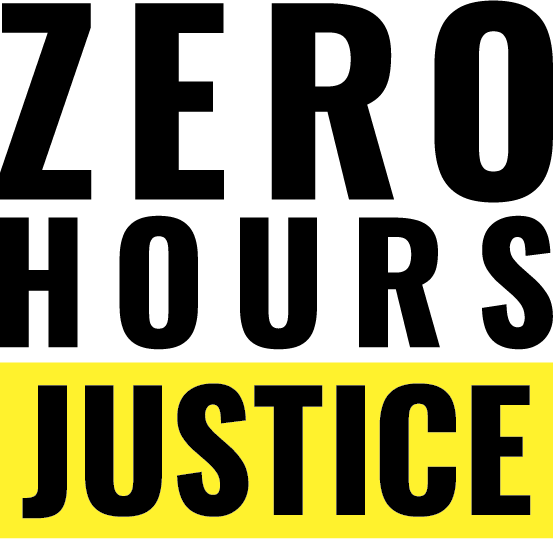|
By Bob Jeffrey, Anti-Casualisation Officer, Sheffield Hallam UCU Branch This week the UCU branch at Sheffield Hallam University has declared a significant win against casualisation. 96% of members polled have endorsed a negotiated settlement that will see all Associate Lecturers (ALs) moved off of zero-hour contracts (ZHCs), with those who are engaged for more than 8 consecutive weeks (i.e. the overwhelming majority) moved onto fixed-term contracts. Although this does not end casualisation at SHU, it goes a long way to addressing the insecurity of zero-hour contracts and inequalities between ALs and other members of academic staff. Specifically:
In addition, the branch was able to secure explicit commitments that the employer does not seek to expand the amount of teaching currently covered by ALs, that no existing academic staff would be downgraded, and to ensure that Associate Lecturers are given the appropriate fixed-term contracts (in terms of length and number of hours). In order to hold the employer to these commitments, robust data will be shared with UCU on an annual basis. The UCU branch at Sheffield Hallam has achieved these gains (and previous gains) as a culmination of a decade of campaigning work, coupled with a preparedness to pursue industrial action, and positive engagement with the employer. That campaigning work began when a Freedom of Information request by UCU HQ in 2013 revealed that there were hundreds of zero hour contracts lecturers at Sheffield Hallam. Conscious of how insecure contracts can be associated with lower rates of pay, pressure to work when sick, anxiety and depression and even risk of exposure to sexual harassment, we were determined to explore the working conditions of ZHC lecturers further, the branch followed up the national FOI with a 2014 survey to evidence the problems workers on these kinds of contracts faced. An overwhelming majority responded that they would prefer to be on a permanent contract with guaranteed hours of work. They also drew attention to the fact that their hourly rate of pay rarely accounted for all of the work they were expected to do (especially in terms of preparation and marking), they were rarely fully included within their subject groups (by being invited to and paid to attend meetings) and in many cases did not feel empowered to speak up about their working conditions. The UCU branch has consistently campaigned on these issues ever since, using casework to push arguments around the ‘less favourable treatment’ of ZHC ALs – for example, if full time, permanent members of staff get an annual appraisal, so should their zero-hour, part time equivalents. In pursuing this strategy – particularly ensuring ZHC staff were invited to and paid to attend meetings – we were able to reduce the extent to which ALs were seen as cheaper alternative to permanent academic staff. A further breakthrough came with the Roddis vs Sheffield Hallam University Employment Appeals Tribunal hearing in 2018. For the first time, this overturned a ludicrous ‘catch-22’ that had effectively prevented ZHC cases being brough under the Part Time Workers Regulations (Prevention of Less Favourable Treatment) 2000. The courts had up until that point had stipulated that any case brought under the regulations required a permanent/full-time comparator ‘on the same contract’, but of course the claimant would be on a zero-hours contract and their comparator would not be, which automatically ruled them out. A further ruling then found that much of the substantive work undertaken by Associate Lecturers at Sheffield Hallam is ‘broadly similar to’ the work undertaken by permanent/full-time academic staff. It is also worth noting that the branch was engaged in a local dispute over workload in 2019-2020, which was successful. Although the industrial action in that year was unrelated to casualisation, it was the first local strike at SHU in decades, and gave a clear indication that the branch would pursue strikes on a given issue, in the absence of meaningful engagement. While this leverage is important, the employer has also demonstrated a more enlightened disposition in recent years, recognising some of the issues around zero-hour contracts and engaging with the union on a constructive basis. Bob Jeffery, Anti-Casualisation Officer at Sheffield Hallam UCU branch, says: "I’m delighted to see the employer move away from zero-hours, which are the most insecure type of employment contracts. We expect several hundred workers will benefit from the enhanced terms and conditions on offer. This is a big step forward in the fight against casualisation." Ben Abell, Branch Secretary at Sheffield Hallam UCU branch says: "These contracts represent an improvement for our most casualised members on a number of fronts. This positive outcome is a testament to the campaigning work of our membership and is just one example of what being in the union can achieve."
Comments are closed.
|
contactFor press enquiries or permission to reuse content, please contact: Archives
June 2024
CATEGORIES
All
|
|
Company No: 12417909 Registered Office: 38 Coney Street, York, Y01 9ND
|


 RSS Feed
RSS Feed


